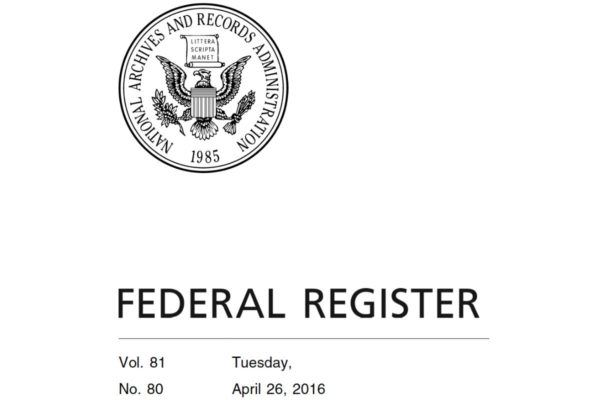DOL Publishes Final Black Lung Rule re: Medical Disclosure, Modification, and More

In today’s Federal Register, the U.S. Department of Labor’s Office of Workers’ Compensation Programs published its final rule “Black Lung Benefits Act: Disclosure of Medical Information and Payment of Benefits.” This rule will be effective in 30 days (May 26, 2016).
The rule—which is embedded and downloadable below—introduces a major new requirement: mandatory disclosure of “any written medical data, including data in electronic format, about the miner that a party develops in connection with a claim for benefits.” (to be codified at 20 C.F.R. § 725.413(a)). This required medical disclosure was a response to a pattern (exemplified by Gary Fox’s case) in which attorneys representing coal companies or their insurers would develop medical evidence but refuse to disclose the evidence to the adjudicator or the claimant.
This is a huge change to black lung benefits practice and will vastly increase the amount of medical evidence that is exchanged in cases—especially cases in which the claimant does not have an attorney. The rule heightens the responsibilities of attorneys and nonattorney representatives and should lead to more accurate decisions by the Department of Labor. And of utmost importance, it ensures that miners are fully informed about all evidence that concerns their personal health.
As the Department of Labor’s press release says,
No worker should have to sacrifice their health to provide for their family, including the thousands of men and women who work in coal mines across the country to meet the nation’s energy needs. These hardworking Americans deserve to know the full scope of their medical condition, and the new rule ensures that they have full access to information about their health, by requiring all parties to exchange any medical information that they develop in connection with a claim, even if they do not intend to submit the information into evidence.
The final rule codified the exceptions for treatment records and attorney correspondence with medical experts. However, the final rule included even draft medical reports as medical information subject to disclosure.
The other significant changes to the black lung regulations are:
- A new requirement that an operator first pay all money currently due on a black lung benefits award before seeking “modification” of the award under 20 C.F.R. § 725.310. As new subsection (e) of § 725.310 will require, the operator must first pay all monetary benefits due, all additional compensation due, all medical benefits due, all attorneys’ fees and costs due, and reimburse for the Trust Fund for any funds it advanced before being able to further challenge the award through the “modification” process. (Modification is a distinct process from an appeal. Although it similarly gives a party the ability to challenge a decision in a black lung case, new evidence can be submitted via modification and the process and standards are different from an appeal.)
- A new provision that allows the Director, OWCP to take a more active role in cases in which it “identified a liable operator that ceases to defend the claim on grounds of an inability to provide for payment of continuing benefits.” (to be codified at § 725.414(a)(3)(iii)). Basically this provision means that in cases in which coal operators stop defending the claim (but the Director has not dismissed the operator), the Director can designate more evidence than it would have previously been allowed to. This provision is meant to help protect the Trust Fund against claims that the Director considers “unmeritorious”—even if the Director previously awarded benefits to the claimant.
- A clarification that when a physician provides a supplemental report in a black lung claim, that the supplement does not count as a distinct “medical report” that would use up a party’s evidentiary slot under the evidentiary limitations.
- A clarification that the 20% additional compensation that is allowed under 33 U.S.C. § 914(f) when an operator fails to timely pay an effective award, is payment of “additional compensation” rather than a “penalty” or “in addition to compensation.” In other words, the 20% is compensation just like the standard monthly monetary benefits and is not somehow a different category of damages.
This rule was first covered on this blog, when proposed, and then when the comment period closed.
The Department of Labor issued a press release regarding the rule today. As previously covered here, the publisher of this blog (Appalachian Citizens’ Law Center) submitted comments supporting the proposed rule. ACLC continues to support the new rule, is glad that some of its suggestions made it into the final rule, and look forwards to monitoring the new rule’s implementation and any legal challenges to the new regulations.
Black Lung Benefits Act: Disclosure of Medical Information and Payment of Benefits